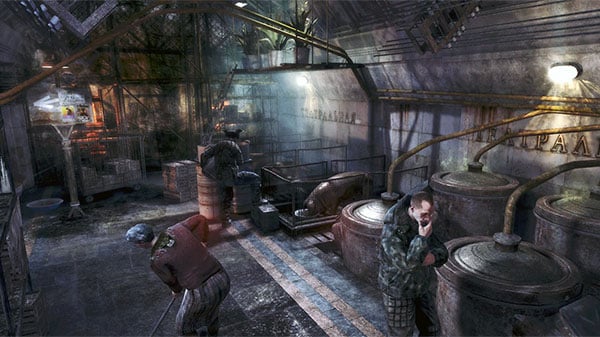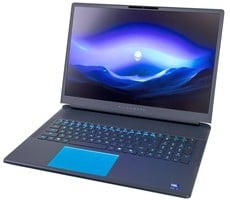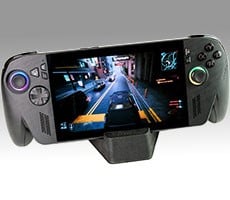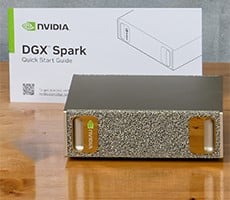|

|
| Metro Last Light Redux |
| DirecX11 Gaming Performance |
|
Metro Last Light Redux boasts some of the best 3D visuals on the PC platform and includes a DX11 rendering mode that makes use of advanced depth of field effects and character model tessellation for increased realism. This title also supports NVIDIA PhysX technology for impressive in-game physics effects, though we left them disabled here. We tested the game at resolutions of 2560x1600 and 3840X2160 (4K) with its in-game image quality options set to Very High and DOF effects disabled.
Metro Last Light Redux

The Chronos was able to keep pace with a Maingear Rush system wielding three GeForce GTX 980 Ti graphics cards, as both averaged right around 70 frames per second at 1080p in Metro Last Light. Origin PC gets credit for piecing together a fast gaming PC inside a small chassis, but let's also give kudos to NVIDIA for the generational leap in performance in going from Maxwell to Pascal.
That said, gaming at 4K still favors multiple graphics cards (depending on the title). When cranking things up to 4K, framerates dropped by more than half to 30 fps, whereas the tri-980 Ti setup was able to stay above 40 fps. Still, these are playable framerates, and with the graphics settings turned up to Very High.
 |
Middle Earth: Shadow of Mordor Performance
|
Glorious Orc-Slaying Vengeance
|
|
Monolith’s surprisingly fun Orc-slaying title delivers a ton of visual fidelity even at the lowest quality settings. So, to maximize eye candy while also heavily taxing the cards, we ran the game's built in benchmark with its Ultra quality settings at a couple of resolutions, topping out at 4K on these tricked-out dragster gaming PCs.
 Middle-Earth: Shadow of Mordor
Middle-Earth: Shadow of Mordor

Once again we see the Chronos putting up performance numbers that belie its small stature. Even at 4K, the Chronos is able to push 100 fps in Shadow of Mordor. That's a gain of nearly 30 fps over
Dell's Alienware Aurora R5 with a regular GeForce GTX 1080 inside. As has been a theme, it takes multiple graphics cards to outperform the Chronos in gaming.
The other thing worth pointing out is that not all of the systems we're comparing the Chronos with are small form factor rigs. Some are much bigger, including the Vybe, which performs only a tad better in Shadow of Mordor at 4K. Straight to the point, the little Chronos packs a big punch.












